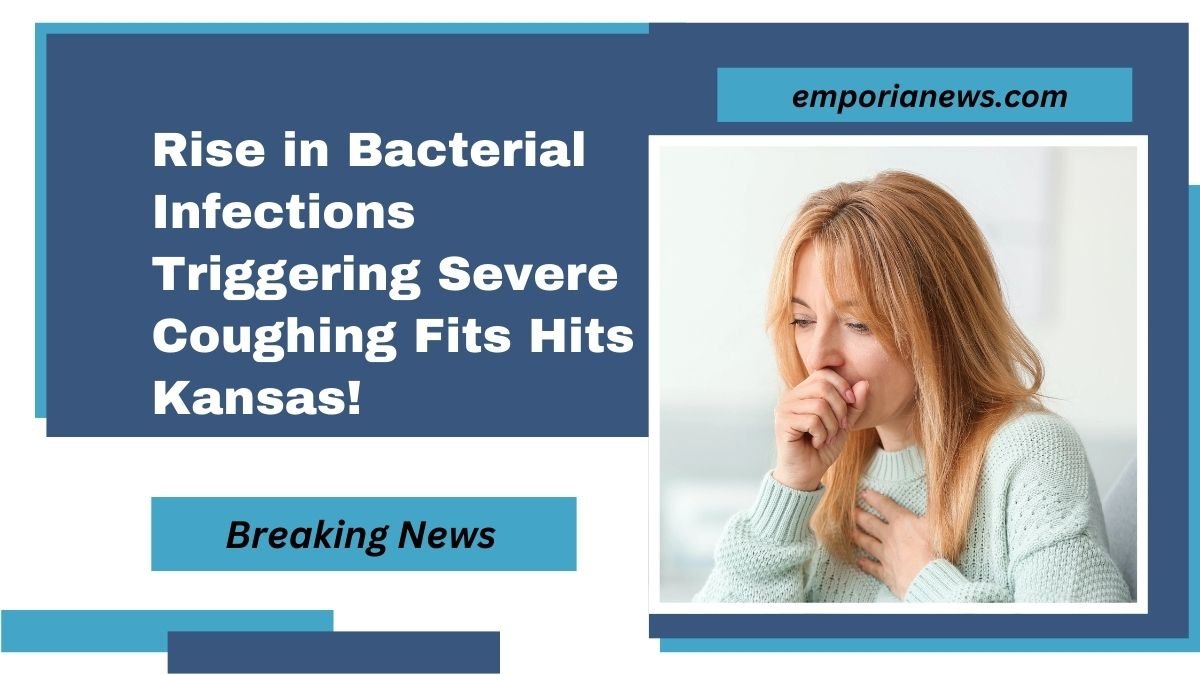Kansas is witnessing an alarming rise in whooping cough cases, marking one of the most significant spikes in nearly a decade. Commonly known as pertussis, whooping cough is a highly contagious respiratory disease caused by the bacterium Bordetella pertussis.
The Kansas Department of Health and Environment (KDHE) and the Centers for Disease Control and Prevention (CDC) have raised concerns over the escalating numbers, emphasizing the importance of vaccination and public awareness.
The Rising Trend of Whooping Cough in Kansas
Kansas health officials report that the state has recorded 246 confirmed cases of whooping cough as of December 18, 2024. This is a drastic increase compared to just 41 cases at the same time last year.
The KDHE initially issued a warning in mid-September, reporting 98 cases—a figure that has since more than doubled.
National trends mirror the situation in Kansas, with preliminary data revealing six times the number of cases compared to last year. This marks the highest numbers reported since 2015, underlining the urgency for preventive measures.
Symptoms and Complications of Whooping Cough
Whooping cough symptoms begin mildly but can worsen significantly within one to two weeks. Key symptoms include:
- Persistent coughing fits.
- Vomiting during or after coughing fits.
- Fatigue and difficulty sleeping.
- Breathing struggles, particularly in severe cases.
- Rib fractures caused by intense coughing.
Complications for Vulnerable Groups:
Babies under one year of age are at the highest risk, with complications such as apnea, a life-threatening condition that causes temporary cessation of breathing. Individuals with asthma or immunocompromised conditions are also highly susceptible to severe infections.
Spread and Transmission
Whooping cough spreads through respiratory droplets when an infected person coughs or sneezes. The bacterium remains transmissible for several weeks if untreated, even when symptoms are mild.
Measures to Curb the Spread
Health officials emphasize the importance of vaccination as the most effective way to prevent pertussis. The pertussis vaccine is recommended for:
- Infants and young children.
- Pregnant women (to protect newborns).
- Adults who have not been vaccinated or require boosters.
Additionally, antibiotics may be prescribed for those exposed to an infected individual. Good hygiene practices, including regular handwashing and covering the mouth and nose when coughing, are crucial during respiratory illness seasons.
Preventive Strategies
Vaccination Recommendations
The KDHE urges individuals to get vaccinated at least once and possibly more frequently, depending on age and health status. Pregnant women, in particular, are encouraged to receive the vaccine to protect newborns during their most vulnerable months.
Public Health Initiatives
The KDHE has implemented several measures to manage the outbreak:
- Educating healthcare providers on identifying and treating whooping cough.
- Assisting public health investigations to ensure proper isolation of infected individuals.
- Identifying high-risk groups for preventive care.
Whooping Cough Cases in Kansas Over Time
| Year | Cases Reported (as of December) | Key Notes |
|---|---|---|
| 2015 | 250+ | Previous record high |
| 2023 | 41 | Comparatively lower cases |
| 2024 | 246 | 6x increase compared to 2023 |
National Perspective
The CDC reports a similar upward trend nationally, with pertussis cases rising across states. Preliminary data indicate near-record levels not seen since the mid-2010s.
Addressing the Crisis
Health officials continue to urge Kansas residents to:
- Get vaccinated.
- Seek prompt testing and treatment if symptoms arise.
- Practice good hygiene.
Public health agencies remain vigilant in their monitoring efforts to contain the outbreak and protect at-risk populations.
The resurgence of whooping cough in Kansas serves as a stark reminder of the importance of vaccination and early diagnosis.
With cases reaching alarming levels, particularly among vulnerable groups like infants, it is crucial for residents to stay informed and take preventive measures. By working collectively, Kansas can mitigate the spread of this highly contagious disease.
What causes whooping cough?
Whooping cough is caused by the bacterium Bordetella pertussis, which infects the respiratory tract and spreads through respiratory droplets.
Who is at the highest risk of severe whooping cough complications?
Infants under one year, individuals with asthma, and those with immunocompromised conditions face the highest risk of severe complications.
How can whooping cough be prevented?
Vaccination is the most effective way to prevent whooping cough. Good hygiene practices, such as handwashing and covering the mouth while coughing, also reduce the risk.




